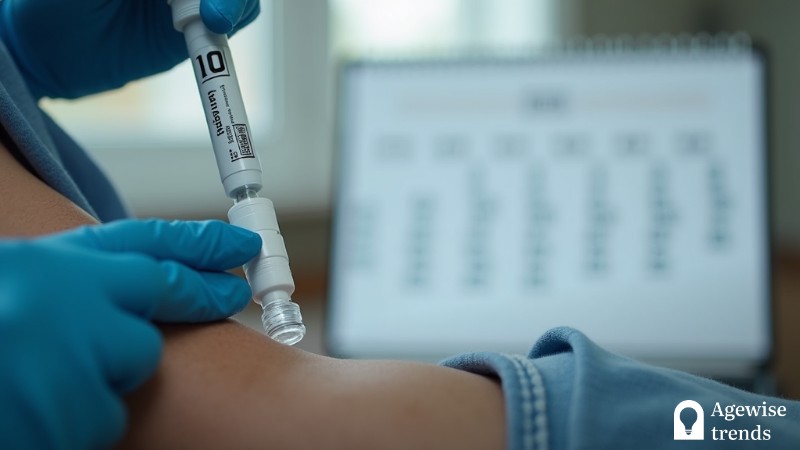As cognitive health becomes a growing concern among aging populations, digital health tools are emerging as valuable resources for early intervention. Nuvance Health is taking a significant step forward by integrating Neuroglee Connect™ into primary care practices across New York and Connecticut.
This expansion brings much-needed support to individuals with mild cognitive impairment (MCI) and early-stage dementia, offering remote access to brain-stimulating activities, health education, and caregiver support. The initiative strengthens memory loss and dementia care by providing patients and caregivers with effective tools to manage cognitive decline.
Key Takeaways
Digital health tools are being integrated into primary care practices to support individuals with mild cognitive impairment and early-stage dementia.
- Nuvance Health is expanding its use of Neuroglee Connect™, a digital platform that provides brain-stimulating activities and education for patients and caregivers.
- The program has shown promising results, including improved cognitive function in 44% of users and reduced anxiety and depression symptoms in many participants.
- By integrating cognitive assessments into primary care, doctors can identify early signs of memory loss and implement timely interventions to manage the condition.
The role of digital health in cognitive care
Early detection and intervention play a crucial role in managing cognitive decline. Mild cognitive impairment, which affects 12% to 18% of adults over 60 in the U.S., is often a precursor to dementia. While MCI does not always progress to more severe conditions, timely interventions can help slow symptom progression.
Neuroglee Connect™ is designed to address these challenges by providing patients with access to cognitive exercises and wellness activities through a mobile device. The platform offers brain-stimulating games that enhance memory, problem-solving, and learning abilities. It also includes reminiscence therapy, where users engage with personal photos and videos to trigger memories.
In addition, the program educates participants on maintaining a healthy lifestyle by covering essential topics such as proper nutrition, regular exercise, and the importance of sleep for cognitive well-being. To further support families, caregivers receive resources that help them manage stress and anxiety, ensuring they have the tools to provide effective care while prioritizing their own well-being.
Integrating cognitive care into primary healthcare
Nuvance Health’s expansion of its cognitive care program highlights the essential role primary care physicians play in early assessments of cognitive health.
These providers already manage key risk factors associated with MCI and dementia, such as diabetes, heart disease, high blood pressure, stroke, and depression. By making cognitive assessments a routine part of primary care, doctors can identify early signs of memory loss and implement timely interventions.
This initiative strengthens dementia care and memory loss by providing patients with early access to digital cognitive therapies that could help manage their condition. Dr. Alex Mosteanu, regional medical director at Nuvance Health Medical Practice Primary Care East, describes the platform as “a mental gym” that allows patients to engage in structured brain exercises while under medical supervision.
Supporting patients and caregivers at home
Caring for someone with MCI or early-stage dementia can be challenging, and caregiver burnout is a major concern. Digital tools like Neuroglee Connect™ help alleviate this burden by offering structured guidance and remote monitoring. Patients receive a personalized cognitive care plan, allowing them to actively participate in brain exercises that strengthen their memory and cognitive skills.
The program has demonstrated promising results, with 44% of patients reporting improved cognitive function. Additionally, 55% of participants experienced reduced anxiety, while 61% saw a decrease in depression symptoms. Adherence to the program has been remarkably high, with 97% of patients consistently following their treatment plans. The overall satisfaction rating stands at 4.8 out of 5, reflecting the program’s positive impact on both patients and caregivers.
The future of at-home cognitive health
While there is no cure for MCI or dementia, tools like Neuroglee Connect™ provide an opportunity to slow cognitive decline and improve daily functioning. By integrating remote cognitive care into primary healthcare, Nuvance Health is making these resources more widely available, ensuring that patients receive support before their symptoms worsen.
Dr. Paul Wright, senior vice president and system chair of the Nuvance Health Neuroscience Institute, emphasizes the value of proactive care: “Evidence-based brain exercises strengthen cognitive function and provide a sense of accomplishment and control over health.”
As digital health continues to evolve, solutions like Neuroglee Connect™ offer a promising way to bridge the gap between early detection and long-term memory loss and dementia care, providing both patients and caregivers with the tools they need to navigate cognitive decline with confidence.















